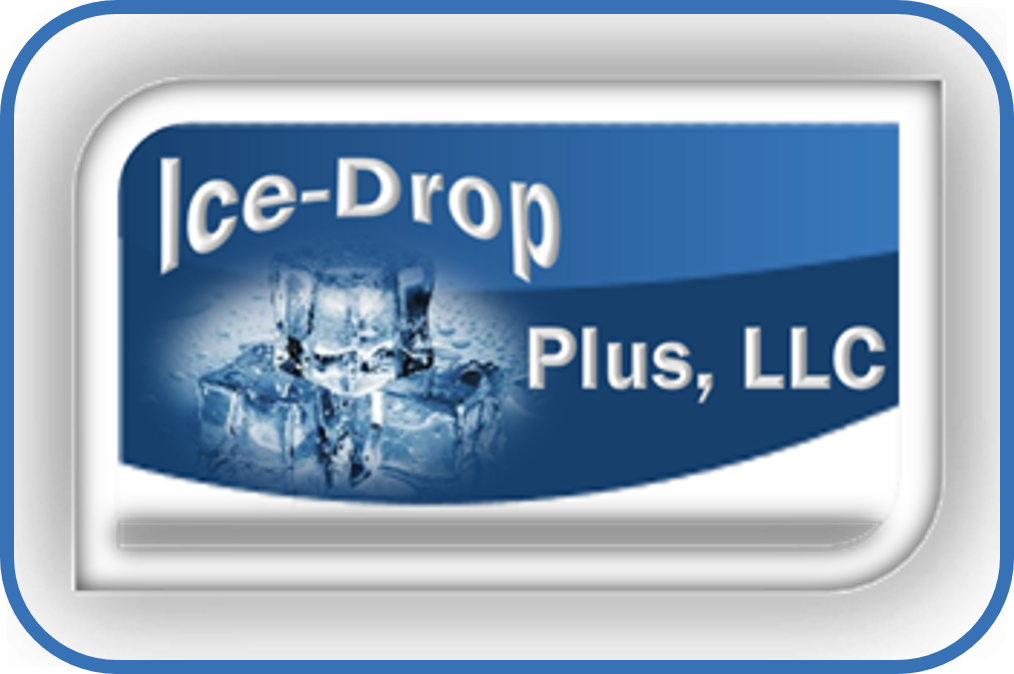BLOG
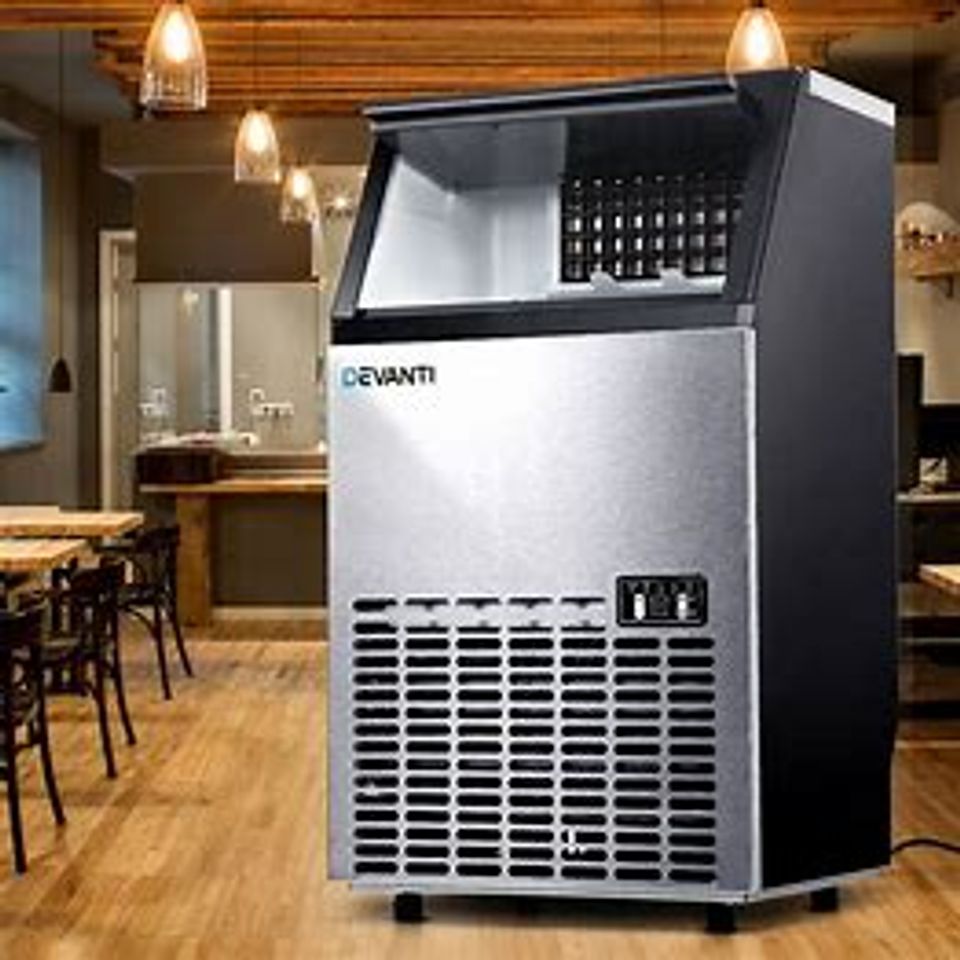
The Importance Of Having Your
Commercial Ice Machine Cleaned & Sanitized
Commercial Ice Machine Cleaned & Sanitized
Food Safety: Ice is considered a food product, and any contamination of the ice can lead to foodborne illnesses if consumed by customers. Regular cleaning and sanitizing help ensure that the ice produced is safe for consumption.
Health Regulations: Health and safety regulations, including those set by the Food and Drug Administration (FDA) and local health departments, require regular cleaning and sanitizing of commercial ice machines. Non-compliance can lead to fines and legal issues.
Taste and Quality: Dirty or contaminated ice can affect the taste and quality of beverages. Clean and properly sanitized ice machines produce ice that is clear, odorless, and free of off-flavors.
Equipment Longevity: Regular cleaning and maintenance extend the life of the ice machine. Accumulated dirt, scale, and debris can cause the machine to work harder, leading to increased wear and tear.
Efficiency: A clean ice machine operates more efficiently, which can lead to lower energy consumption and reduced operating costs. It also ensures that the machine produces ice at its optimal rate.
Preventing Mold and Bacteria Growth: Ice machines can provide an ideal environment for the growth of mold, bacteria, and biofilm. Regular cleaning and sanitizing help prevent the buildup of these contaminants, which can lead to health hazards.
Ice Quality and Appearance: Clean machines produce ice that is clear and free of particles, resulting in a more visually appealing product. This is particularly important in industries like hospitality and food service.
Customer Trust: Maintaining a clean and sanitized ice machine reflects positively on your business. Customers are more likely to trust establishments that prioritize hygiene and safety.
Preventing Cross-Contamination: Contaminants from the ice machine can spread to other surfaces, equipment, or food items in the vicinity. Regular cleaning and sanitizing help prevent cross-contamination in the kitchen or bar area.
Legal Liability: In the event of a foodborne illness outbreak traced back to your establishment, not following proper cleaning and sanitation protocols for your ice machine could result in legal liabilities and damage to your business's reputation.
To ensure the safety of your customers, the compliance with health regulations, the quality of your products, and the longevity of your equipment, it's essential to establish a regular cleaning and sanitizing schedule for your commercial ice machine, following manufacturer guidelines and local health codes.
Health Regulations: Health and safety regulations, including those set by the Food and Drug Administration (FDA) and local health departments, require regular cleaning and sanitizing of commercial ice machines. Non-compliance can lead to fines and legal issues.
Taste and Quality: Dirty or contaminated ice can affect the taste and quality of beverages. Clean and properly sanitized ice machines produce ice that is clear, odorless, and free of off-flavors.
Equipment Longevity: Regular cleaning and maintenance extend the life of the ice machine. Accumulated dirt, scale, and debris can cause the machine to work harder, leading to increased wear and tear.
Efficiency: A clean ice machine operates more efficiently, which can lead to lower energy consumption and reduced operating costs. It also ensures that the machine produces ice at its optimal rate.
Preventing Mold and Bacteria Growth: Ice machines can provide an ideal environment for the growth of mold, bacteria, and biofilm. Regular cleaning and sanitizing help prevent the buildup of these contaminants, which can lead to health hazards.
Ice Quality and Appearance: Clean machines produce ice that is clear and free of particles, resulting in a more visually appealing product. This is particularly important in industries like hospitality and food service.
Customer Trust: Maintaining a clean and sanitized ice machine reflects positively on your business. Customers are more likely to trust establishments that prioritize hygiene and safety.
Preventing Cross-Contamination: Contaminants from the ice machine can spread to other surfaces, equipment, or food items in the vicinity. Regular cleaning and sanitizing help prevent cross-contamination in the kitchen or bar area.
Legal Liability: In the event of a foodborne illness outbreak traced back to your establishment, not following proper cleaning and sanitation protocols for your ice machine could result in legal liabilities and damage to your business's reputation.
To ensure the safety of your customers, the compliance with health regulations, the quality of your products, and the longevity of your equipment, it's essential to establish a regular cleaning and sanitizing schedule for your commercial ice machine, following manufacturer guidelines and local health codes.
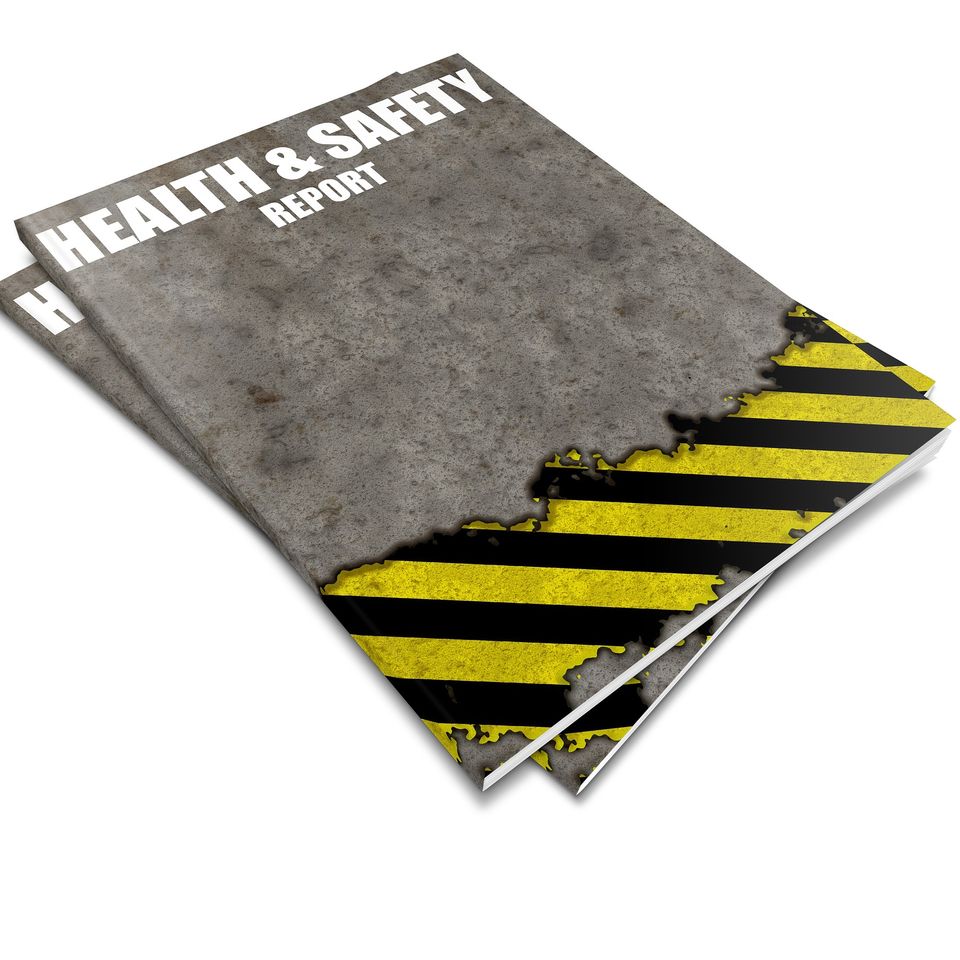
Health and Safety Compliance
How Professional Ice Machine Cleaning Services Ensure Regulatory Standards
Ensuring health and safety compliance is paramount in any foodservice establishment, and one often overlooked aspect is the cleanliness of commercial ice machines. Professional ice machine cleaning services play a crucial role in maintaining regulatory standards and safeguarding public health. In this article, we delve into the importance of these services and how they contribute to compliance with food safety regulations.
1. Understanding Regulatory Standards
Before delving into the role of professional ice machine cleaning services, it's essential to understand the regulatory standards that govern food safety in commercial settings. Organizations such as the Food and Drug Administration (FDA) and the Centers for Disease Control and Prevention (CDC) have established guidelines for the maintenance and cleanliness of food equipment, including ice machines. These standards aim to prevent the spread of foodborne illnesses and ensure the safety of consumers.
2. Challenges of Ice Machine Maintenance
Commercial ice machines are prone to various forms of contamination, including bacterial growth, mold accumulation, and scale buildup. These contaminants not only compromise the quality and taste of the ice but also pose serious health risks to consumers. Moreover, the complexity of ice machine components, such as ice bins, evaporator coils, and water filters, makes thorough cleaning and sanitization challenging for restaurant staff.
3. The Role of Professional Cleaning Services
Professional ice machine cleaning services are equipped with the expertise, tools, and industry knowledge necessary to address the unique challenges of ice machine maintenance. Trained technicians follow a systematic cleaning process that involves disassembly, thorough cleaning, sanitization, and reassembly of all machine components. They use specialized equipment and cleaning agents to remove stubborn deposits, eliminate microbial contamination, and ensure the machine operates at peak efficiency.
4. Compliance with Food Safety Regulations
By employing professional ice machine cleaning services, foodservice establishments can demonstrate compliance with food safety regulations. These services adhere to industry best practices and standards set forth by regulatory agencies, ensuring that ice machines meet hygiene requirements and pose minimal risk of contamination. Regular cleaning and sanitization not only protect consumers from foodborne illnesses but also mitigate the risk of costly fines and penalties for non-compliance.
5. Benefits Beyond Compliance
Beyond regulatory compliance, professional ice machine cleaning services offer additional benefits to foodservice operators. Clean ice machines produce ice that is free from off-flavors, odors, and visible impurities, enhancing the overall dining experience for customers. Moreover, by maintaining optimal performance and efficiency, clean ice machines reduce energy consumption, prolong equipment lifespan, and minimize costly repairs and downtime.
Conclusion
In conclusion, professional ice machine cleaning services play a crucial role in ensuring health and safety compliance in foodservice establishments. By adhering to regulatory standards and employing industry best practices, these services help prevent foodborne illnesses, protect public health, and uphold the reputation of businesses. Investing in regular cleaning and sanitization not only demonstrates a commitment to food safety but also yields tangible benefits in terms of equipment performance, energy efficiency, and customer satisfaction.
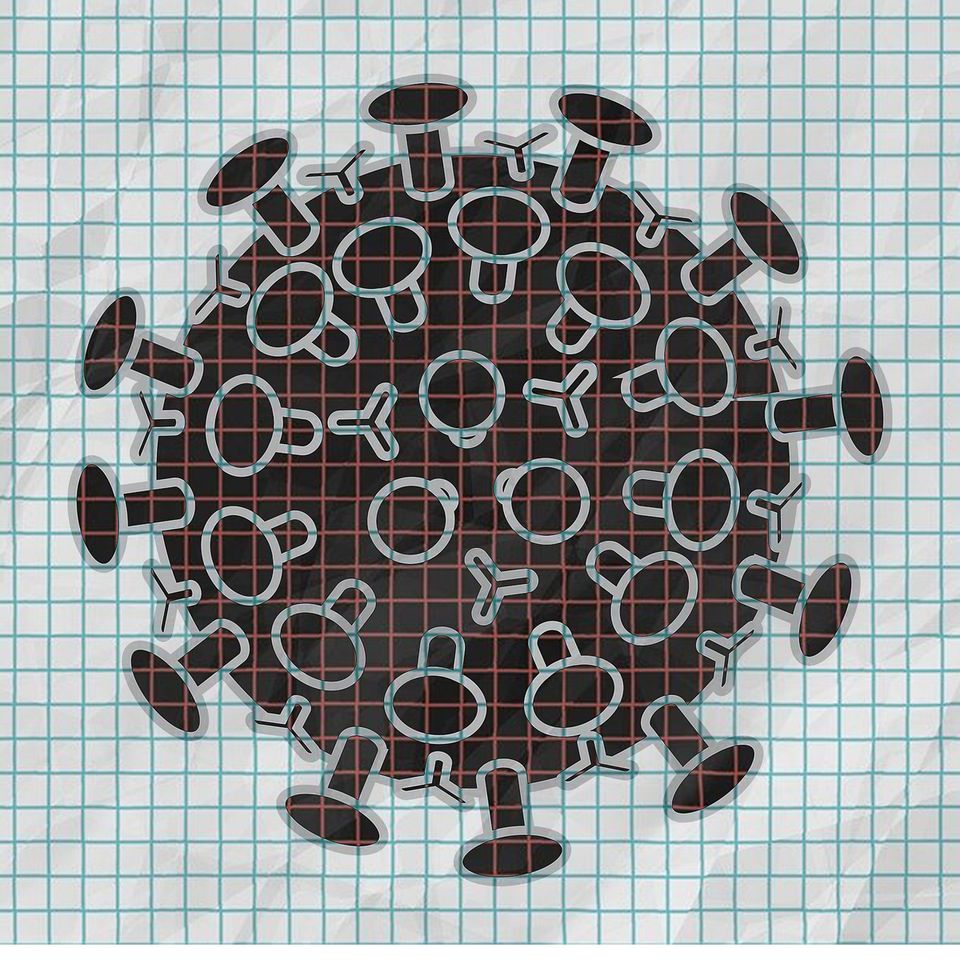
Beyond the Basics:
Advanced Techniques for Cleaning and Sanitizing
Commercial Ice Machines
Advanced Techniques for Cleaning and Sanitizing
Commercial Ice Machines
Maintaining the cleanliness and sanitation of commercial ice machines is essential for ensuring food safety and prolonging equipment lifespan. While basic cleaning practices are necessary, advanced techniques can further enhance hygiene standards and optimize machine performance. In this article, we explore advanced strategies and methods for cleaning and sanitizing commercial ice machines, going beyond the basics to achieve superior results.
1. Comprehensive Cleaning Protocols
Advanced cleaning protocols for commercial ice machines go beyond simple surface cleaning. They involve thorough disassembly of machine components to access hard-to-reach areas where contaminants may accumulate. This includes removing ice bins, evaporator coils, water distribution systems, and other internal parts for deep cleaning. Professional technicians use specialized tools and equipment to dislodge debris, remove mineral deposits, and eliminate microbial growth effectively.
2. Chemical-Free Cleaning Solutions
While traditional cleaning agents are effective at sanitizing ice machines, advanced techniques explore chemical-free alternatives to minimize environmental impact and ensure food safety. Techniques such as steam cleaning use high-temperature steam to dissolve grease, grime, and bacteria without the need for harsh chemicals. This eco-friendly approach not only reduces chemical residues in ice but also promotes sustainability and reduces the risk of chemical contamination.
3. Advanced Sanitization Methods
In addition to cleaning, advanced sanitization methods are crucial for eliminating microbial contaminants and preventing bacterial growth in commercial ice machines. Ultraviolet (UV) light sanitization technology is gaining popularity for its ability to kill bacteria, viruses, and other pathogens without using chemicals. UV light penetrates microbial cell walls, disrupting their DNA and rendering them unable to reproduce. Incorporating UV sanitization into regular maintenance routines enhances overall hygiene and reduces the risk of foodborne illnesses.
4. Ongoing Maintenance Programs
Advanced cleaning and sanitization techniques are most effective when integrated into comprehensive maintenance programs tailored to the specific needs of each commercial ice machine. These programs include regular inspections, preventive maintenance tasks, and proactive measures to identify and address potential issues before they escalate. By implementing ongoing maintenance programs, businesses can ensure consistent cleanliness, optimize equipment performance, and minimize the risk of costly repairs and downtime.
5. Training and Certification
To execute advanced cleaning and sanitization techniques effectively, technicians require specialized training and certification. Training programs cover topics such as equipment operation, safety protocols, cleaning procedures, and regulatory compliance. Certification programs validate technicians' proficiency and ensure adherence to industry standards and best practices. By investing in trained and certified technicians, businesses can trust that their ice machines receive the highest level of care and maintenance.
Conclusion
In conclusion, advanced techniques for cleaning and sanitizing commercial ice machines go beyond the basics to deliver superior results in terms of hygiene, performance, and sustainability. Comprehensive cleaning protocols, chemical-free solutions, advanced sanitization methods, ongoing maintenance programs, and trained technicians are key components of an effective maintenance strategy. By embracing advanced techniques, businesses can ensure the cleanliness and safety of their ice machines, protect public health, and uphold their reputation in the foodservice industry.
1. Comprehensive Cleaning Protocols
Advanced cleaning protocols for commercial ice machines go beyond simple surface cleaning. They involve thorough disassembly of machine components to access hard-to-reach areas where contaminants may accumulate. This includes removing ice bins, evaporator coils, water distribution systems, and other internal parts for deep cleaning. Professional technicians use specialized tools and equipment to dislodge debris, remove mineral deposits, and eliminate microbial growth effectively.
2. Chemical-Free Cleaning Solutions
While traditional cleaning agents are effective at sanitizing ice machines, advanced techniques explore chemical-free alternatives to minimize environmental impact and ensure food safety. Techniques such as steam cleaning use high-temperature steam to dissolve grease, grime, and bacteria without the need for harsh chemicals. This eco-friendly approach not only reduces chemical residues in ice but also promotes sustainability and reduces the risk of chemical contamination.
3. Advanced Sanitization Methods
In addition to cleaning, advanced sanitization methods are crucial for eliminating microbial contaminants and preventing bacterial growth in commercial ice machines. Ultraviolet (UV) light sanitization technology is gaining popularity for its ability to kill bacteria, viruses, and other pathogens without using chemicals. UV light penetrates microbial cell walls, disrupting their DNA and rendering them unable to reproduce. Incorporating UV sanitization into regular maintenance routines enhances overall hygiene and reduces the risk of foodborne illnesses.
4. Ongoing Maintenance Programs
Advanced cleaning and sanitization techniques are most effective when integrated into comprehensive maintenance programs tailored to the specific needs of each commercial ice machine. These programs include regular inspections, preventive maintenance tasks, and proactive measures to identify and address potential issues before they escalate. By implementing ongoing maintenance programs, businesses can ensure consistent cleanliness, optimize equipment performance, and minimize the risk of costly repairs and downtime.
5. Training and Certification
To execute advanced cleaning and sanitization techniques effectively, technicians require specialized training and certification. Training programs cover topics such as equipment operation, safety protocols, cleaning procedures, and regulatory compliance. Certification programs validate technicians' proficiency and ensure adherence to industry standards and best practices. By investing in trained and certified technicians, businesses can trust that their ice machines receive the highest level of care and maintenance.
Conclusion
In conclusion, advanced techniques for cleaning and sanitizing commercial ice machines go beyond the basics to deliver superior results in terms of hygiene, performance, and sustainability. Comprehensive cleaning protocols, chemical-free solutions, advanced sanitization methods, ongoing maintenance programs, and trained technicians are key components of an effective maintenance strategy. By embracing advanced techniques, businesses can ensure the cleanliness and safety of their ice machines, protect public health, and uphold their reputation in the foodservice industry.

Saving Time and Money: The Cost-Effectiveness of
Outsourcing Ice Machine Cleaning and Sanitizing
Outsourcing Ice Machine Cleaning and Sanitizing
In the fast-paced world of foodservice, time and money are precious commodities. Managing the cleanliness and sanitation of commercial ice machines is essential for food safety, but it can also be time-consuming and costly if not done efficiently. Outsourcing ice machine cleaning and sanitizing services offers a cost-effective solution that saves both time and money. In this article, we explore the benefits of outsourcing and how it can contribute to the bottom line of foodservice businesses.
1. Expertise and Efficiency
Professional ice machine cleaning and sanitizing services bring expertise and efficiency to the table. Trained technicians have the knowledge and experience to tackle even the most challenging cleaning tasks quickly and effectively. They follow industry best practices and use specialized equipment and techniques to ensure thorough cleaning and sanitization of all machine components. By outsourcing these services, businesses can save valuable time that would otherwise be spent on training staff or attempting to clean the machines themselves.
2. Reduced Labor Costs
Outsourcing ice machine cleaning and sanitizing can lead to significant savings in labor costs. Instead of allocating valuable staff hours to cleaning tasks, businesses can rely on external service providers to handle the job efficiently. This allows employees to focus on their primary responsibilities, such as food preparation, customer service, and operational tasks, thereby maximizing productivity and minimizing labor expenses. Additionally, outsourcing eliminates the need to hire and train dedicated cleaning staff, further reducing overhead costs.
3. Preventive Maintenance and Cost Avoidance
Regular cleaning and sanitizing are essential for preventing equipment breakdowns and costly repairs. Outsourcing ice machine maintenance to professional service providers typically includes preventive maintenance tasks as part of the service package. Trained technicians inspect the machines for signs of wear and tear, identify potential issues early on, and perform proactive repairs to prevent major breakdowns. By addressing maintenance needs promptly, businesses can avoid costly emergency repairs and minimize downtime, ultimately saving money in the long run.
4. Extended Equipment Lifespan
Proper cleaning and maintenance prolong the lifespan of commercial ice machines, saving businesses money on equipment replacement costs. Professional cleaning services ensure that machines operate at peak efficiency, reducing wear and tear on components and minimizing the risk of premature failure. By investing in regular maintenance and cleaning, businesses can extend the lifespan of their ice machines, maximizing the return on their investment and avoiding the expense of purchasing new equipment prematurely.
5. Peace of Mind and Reputation Protection
Outsourcing ice machine cleaning and sanitizing provides businesses with peace of mind knowing that their equipment is in capable hands. Professional service providers adhere to industry standards and regulatory requirements, ensuring compliance with food safety regulations and protecting the health and safety of customers. Maintaining clean and sanitary ice machines also safeguards the reputation of businesses, enhancing customer trust and loyalty. The cost savings associated with outsourcing are not just financial but also extend to preserving the brand reputation and integrity of foodservice establishments.
Conclusion
In conclusion, outsourcing ice machine cleaning and sanitizing services offers a cost-effective solution for foodservice businesses looking to save time and money. By leveraging the expertise of professional technicians, businesses can achieve thorough cleaning and sanitization of their ice machines, reduce labor costs, prevent costly repairs, extend equipment lifespan, and protect their reputation. Investing in outsourcing is not just an expense but a strategic decision that yields tangible benefits in terms of efficiency, reliability, and overall cost-effectiveness.
1. Expertise and Efficiency
Professional ice machine cleaning and sanitizing services bring expertise and efficiency to the table. Trained technicians have the knowledge and experience to tackle even the most challenging cleaning tasks quickly and effectively. They follow industry best practices and use specialized equipment and techniques to ensure thorough cleaning and sanitization of all machine components. By outsourcing these services, businesses can save valuable time that would otherwise be spent on training staff or attempting to clean the machines themselves.
2. Reduced Labor Costs
Outsourcing ice machine cleaning and sanitizing can lead to significant savings in labor costs. Instead of allocating valuable staff hours to cleaning tasks, businesses can rely on external service providers to handle the job efficiently. This allows employees to focus on their primary responsibilities, such as food preparation, customer service, and operational tasks, thereby maximizing productivity and minimizing labor expenses. Additionally, outsourcing eliminates the need to hire and train dedicated cleaning staff, further reducing overhead costs.
3. Preventive Maintenance and Cost Avoidance
Regular cleaning and sanitizing are essential for preventing equipment breakdowns and costly repairs. Outsourcing ice machine maintenance to professional service providers typically includes preventive maintenance tasks as part of the service package. Trained technicians inspect the machines for signs of wear and tear, identify potential issues early on, and perform proactive repairs to prevent major breakdowns. By addressing maintenance needs promptly, businesses can avoid costly emergency repairs and minimize downtime, ultimately saving money in the long run.
4. Extended Equipment Lifespan
Proper cleaning and maintenance prolong the lifespan of commercial ice machines, saving businesses money on equipment replacement costs. Professional cleaning services ensure that machines operate at peak efficiency, reducing wear and tear on components and minimizing the risk of premature failure. By investing in regular maintenance and cleaning, businesses can extend the lifespan of their ice machines, maximizing the return on their investment and avoiding the expense of purchasing new equipment prematurely.
5. Peace of Mind and Reputation Protection
Outsourcing ice machine cleaning and sanitizing provides businesses with peace of mind knowing that their equipment is in capable hands. Professional service providers adhere to industry standards and regulatory requirements, ensuring compliance with food safety regulations and protecting the health and safety of customers. Maintaining clean and sanitary ice machines also safeguards the reputation of businesses, enhancing customer trust and loyalty. The cost savings associated with outsourcing are not just financial but also extend to preserving the brand reputation and integrity of foodservice establishments.
Conclusion
In conclusion, outsourcing ice machine cleaning and sanitizing services offers a cost-effective solution for foodservice businesses looking to save time and money. By leveraging the expertise of professional technicians, businesses can achieve thorough cleaning and sanitization of their ice machines, reduce labor costs, prevent costly repairs, extend equipment lifespan, and protect their reputation. Investing in outsourcing is not just an expense but a strategic decision that yields tangible benefits in terms of efficiency, reliability, and overall cost-effectiveness.
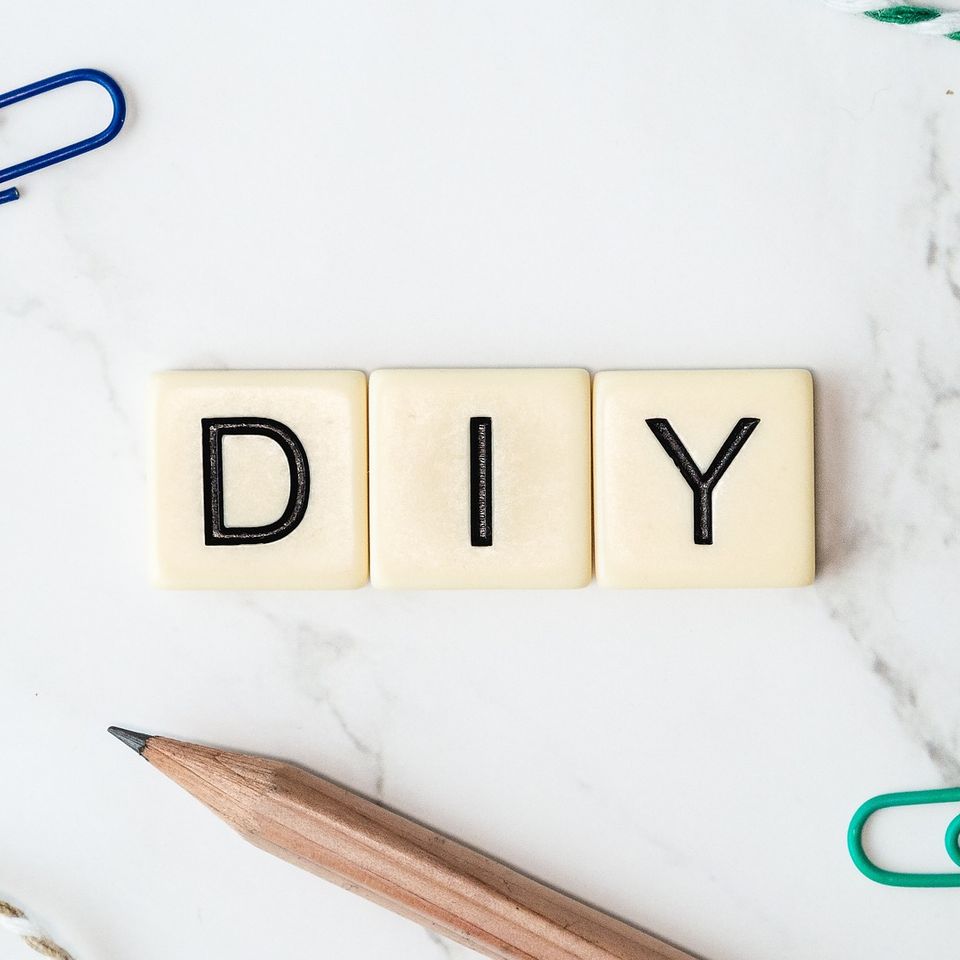
Ice Machine Cleaning: DIY vs. Professional Services -
Which is Right for Your Business?
Which is Right for Your Business?
Maintaining the cleanliness and sanitation of commercial ice machines is crucial for food safety and equipment performance. While some businesses opt for a do-it-yourself (DIY) approach to cleaning, others prefer to enlist the help of professional cleaning services. In this article, we compare DIY cleaning methods with professional services to help businesses determine which option is right for them.
1. DIY Cleaning: Pros and Cons
DIY cleaning involves performing cleaning and sanitizing tasks using in-house staff and resources. This approach offers several advantages, including cost savings and flexibility. Businesses can schedule cleaning at their convenience and customize cleaning protocols to suit their specific needs. Additionally, DIY cleaning allows businesses to maintain control over the cleaning process and ensure that it aligns with their standards.
However, DIY cleaning also has its drawbacks. Inexperienced staff may not be fully equipped to handle the intricacies of commercial ice machines, leading to incomplete cleaning or improper sanitization. Moreover, DIY cleaning requires time and effort from already busy staff, potentially diverting resources away from core business activities. Inadequate cleaning can also pose health risks to customers and result in equipment damage or malfunction.
2. Professional Cleaning Services: Pros and Cons
Professional cleaning services offer businesses the expertise and efficiency needed to maintain clean and sanitary ice machines. Trained technicians follow standardized cleaning protocols and use specialized equipment and cleaning agents to achieve thorough cleaning and sanitization. Outsourcing cleaning tasks to professionals saves businesses time and labor costs, allowing staff to focus on other priorities.
Additionally, professional cleaning services often include preventive maintenance tasks as part of the service package. This proactive approach helps identify and address potential issues early on, reducing the risk of equipment breakdowns and costly repairs. Furthermore, relying on professional services ensures compliance with food safety regulations and protects the reputation of businesses.
However, professional cleaning services come at a cost, which may be prohibitive for some businesses, especially smaller establishments with limited budgets. Moreover, businesses must entrust external service providers with their equipment, necessitating careful vetting to ensure reliability and quality of service.
3. Choosing the Right Option for Your Business
When deciding between DIY cleaning and professional services, businesses should consider factors such as budget, staff expertise, equipment complexity, and regulatory requirements. Smaller businesses with limited resources may opt for DIY cleaning to save costs, provided they have knowledgeable staff and adequate cleaning supplies. Larger establishments or those with complex ice machine systems may prefer professional cleaning services to ensure thorough cleaning, compliance with regulations, and peace of mind.
Ultimately, the right choice depends on the specific needs and priorities of each business. Some businesses may benefit from a combination of DIY cleaning for routine maintenance and professional services for periodic deep cleaning and preventive maintenance. Regardless of the approach chosen, regular cleaning and sanitization of commercial ice machines are essential for ensuring food safety, equipment performance, and customer satisfaction.
Conclusion
In conclusion, both DIY cleaning and professional services offer viable options for maintaining the cleanliness and sanitation of commercial ice machines. Businesses should carefully evaluate their needs, resources, and priorities to determine the most suitable approach. Whether opting for DIY cleaning or professional services, the key is to prioritize regular cleaning and sanitization to safeguard food safety, protect equipment integrity, and uphold the reputation of the business.
1. DIY Cleaning: Pros and Cons
DIY cleaning involves performing cleaning and sanitizing tasks using in-house staff and resources. This approach offers several advantages, including cost savings and flexibility. Businesses can schedule cleaning at their convenience and customize cleaning protocols to suit their specific needs. Additionally, DIY cleaning allows businesses to maintain control over the cleaning process and ensure that it aligns with their standards.
However, DIY cleaning also has its drawbacks. Inexperienced staff may not be fully equipped to handle the intricacies of commercial ice machines, leading to incomplete cleaning or improper sanitization. Moreover, DIY cleaning requires time and effort from already busy staff, potentially diverting resources away from core business activities. Inadequate cleaning can also pose health risks to customers and result in equipment damage or malfunction.
2. Professional Cleaning Services: Pros and Cons
Professional cleaning services offer businesses the expertise and efficiency needed to maintain clean and sanitary ice machines. Trained technicians follow standardized cleaning protocols and use specialized equipment and cleaning agents to achieve thorough cleaning and sanitization. Outsourcing cleaning tasks to professionals saves businesses time and labor costs, allowing staff to focus on other priorities.
Additionally, professional cleaning services often include preventive maintenance tasks as part of the service package. This proactive approach helps identify and address potential issues early on, reducing the risk of equipment breakdowns and costly repairs. Furthermore, relying on professional services ensures compliance with food safety regulations and protects the reputation of businesses.
However, professional cleaning services come at a cost, which may be prohibitive for some businesses, especially smaller establishments with limited budgets. Moreover, businesses must entrust external service providers with their equipment, necessitating careful vetting to ensure reliability and quality of service.
3. Choosing the Right Option for Your Business
When deciding between DIY cleaning and professional services, businesses should consider factors such as budget, staff expertise, equipment complexity, and regulatory requirements. Smaller businesses with limited resources may opt for DIY cleaning to save costs, provided they have knowledgeable staff and adequate cleaning supplies. Larger establishments or those with complex ice machine systems may prefer professional cleaning services to ensure thorough cleaning, compliance with regulations, and peace of mind.
Ultimately, the right choice depends on the specific needs and priorities of each business. Some businesses may benefit from a combination of DIY cleaning for routine maintenance and professional services for periodic deep cleaning and preventive maintenance. Regardless of the approach chosen, regular cleaning and sanitization of commercial ice machines are essential for ensuring food safety, equipment performance, and customer satisfaction.
Conclusion
In conclusion, both DIY cleaning and professional services offer viable options for maintaining the cleanliness and sanitation of commercial ice machines. Businesses should carefully evaluate their needs, resources, and priorities to determine the most suitable approach. Whether opting for DIY cleaning or professional services, the key is to prioritize regular cleaning and sanitization to safeguard food safety, protect equipment integrity, and uphold the reputation of the business.
